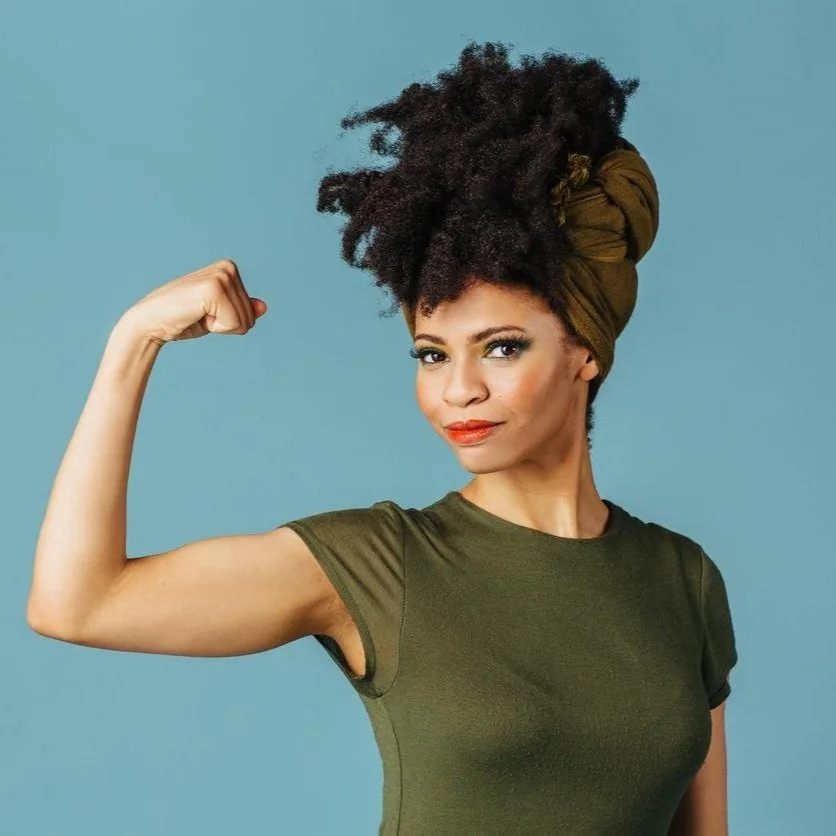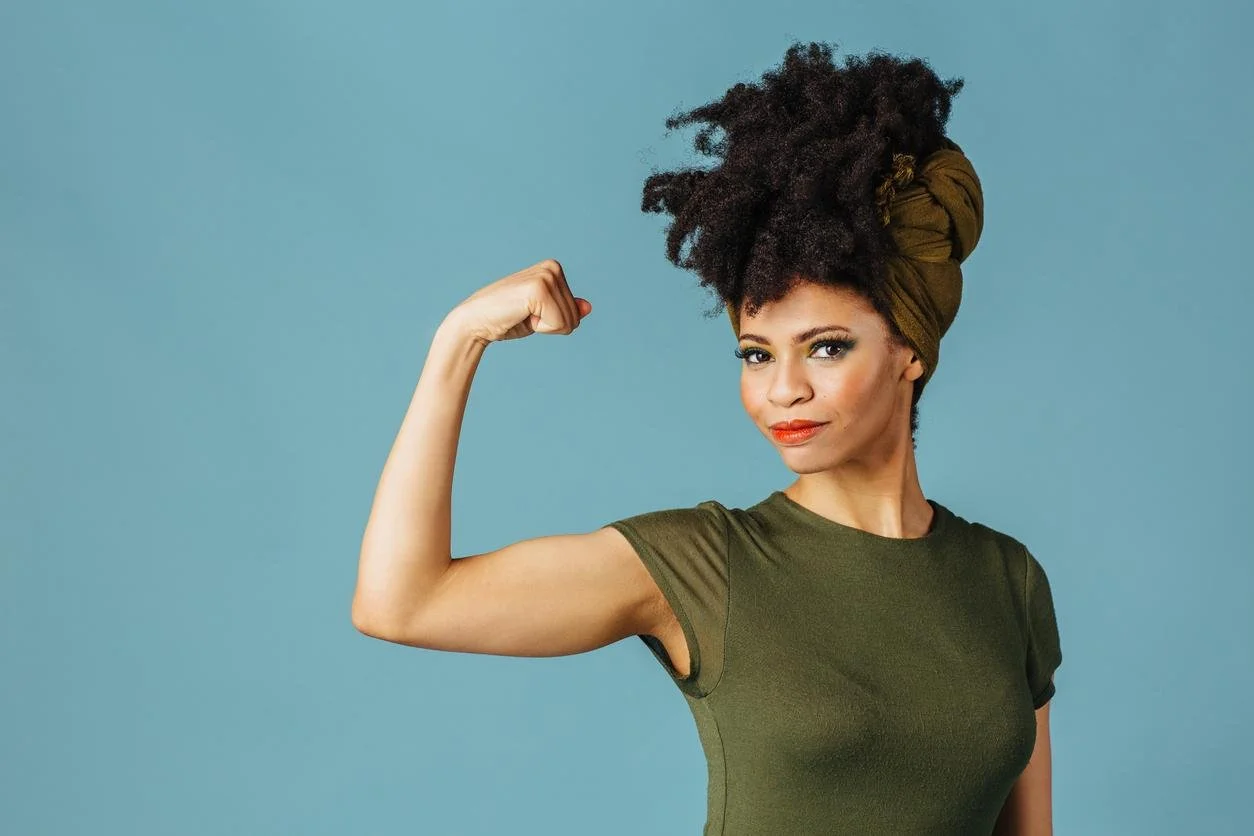Liked by Few, Loved by You: A Guide to Self-Acceptance
Embracing the reality of being disliked can foster personal growth, authentic relationships, and a deeper sense of self-worth by prioritizing authenticity over approval. We discuss it here!
Photo Credit: Delmaine Donson via iStockPhoto.com
By: Jamila Gomez
In a world that often equates popularity with success, the idea of being disliked can feel like a daunting prospect. Many of us expend significant energy trying to win approval, avoid conflict, and fit in. But here’s the truth: being liked by everyone is not only impossible but also unnecessary for a fulfilling life. In fact, embracing the reality of being disliked can lead to personal growth, authentic relationships, and greater peace of mind.
The Roots of the Need for Approval
From an early age, many people are conditioned to seek validation. Whether it’s praise from parents, good grades in school, or likes on social media, external approval becomes a marker of self-worth. However, this approval-seeking can lead to sacrificing authenticity. The fear of being disliked may cause individuals to suppress their true opinions, avoid setting boundaries, or conform to expectations that don’t align with their values.
Why It’s Okay to Be Disliked
Being disliked isn’t inherently a negative thing—it often means you are standing firm in your values and being true to yourself. Not everyone will agree with your decisions, personality, or perspective, and that’s natural. Trying to appeal to everyone dilutes who you are, making it harder to form meaningful, genuine connections.
Accepting that some people won’t like you also sets you free from the exhausting task of managing perceptions. When you stop living for others’ approval, you create space for your own happiness and authenticity.
The Value of Authenticity
Choosing authenticity over popularity fosters self-respect. When you stay true to your principles, you attract people who appreciate and support the real you, rather than a curated version designed to please others. These relationships are deeper and more fulfilling, as they are based on mutual understanding rather than surface-level agreement.
Moreover, embracing your uniqueness allows you to contribute to the world in meaningful ways. Great leaders, thinkers, and artists are often polarizing figures because they challenge norms and inspire change. They are unafraid to be disliked, knowing that their purpose outweighs the opinions of detractors.
How to Embrace Being Disliked
Learning to be okay with being disliked starts with self-awareness. Recognize whose opinions truly matter and why. Not every criticism warrants a response or a change in behavior. Set boundaries that protect your time, energy, and well-being.
Lastly, practice self-compassion. Understand that being disliked doesn’t define your worth. By prioritizing your values and happiness, you gain confidence and resilience.
In the end, being disliked is not a failure; it’s a sign that you are living authentically. And that, in itself, is something worth celebrating.
YOU MAY ALSO BE INTERESTED IN:
SHARE TO SOCIAL MEDIA
Black Women Deserve Grace, Not Criticism
Black women face exhausting double standards in appearance, behavior, and cultural expression, highlighting society's need to dismantle biases and celebrate authenticity. We discuss it here!
Photo Credit: Rawpixel via iStockPhoto.com
By: Jamila Gomez
Black women often endure a unique and exhausting double standard in how their actions, appearance, and behavior are judged compared to women of other races. Despite their resilience and contributions to culture, society, and history, they are frequently ridiculed for things that are celebrated or overlooked when displayed by others.
One of the most glaring examples of this double standard lies in the policing of Black women’s physical appearance. Hairstyles like braids, afros, or locs, which are deeply rooted in Black culture, are often labeled as “unprofessional” or “unkempt” in corporate settings. Meanwhile, these same styles, when adopted by non-Black women, are praised as “edgy” or “trendy.” Similarly, Black women are criticized for their naturally curvier bodies or voluptuous figures, often labeled as “too sexual” or “inappropriate.” Yet, when others undergo cosmetic procedures to mimic these features, it’s deemed desirable and aspirational.
Black women’s assertiveness is also subject to an unfair lens. When they speak up for themselves or express strong opinions, they are often branded as “angry” or “aggressive.” This harmful stereotype of the “angry Black woman” minimizes their voices, making them hesitant to advocate for themselves in professional or personal settings. In contrast, women of other races who exhibit the same assertiveness are more likely to be seen as confident and empowered.
Even in parenting, Black women face harsher judgment. Single Black mothers are disproportionately stigmatized and blamed for societal issues, despite many demonstrating incredible strength and resourcefulness. Conversely, single mothers from other backgrounds often receive sympathy and support, with their struggles seen as individual challenges rather than moral failings.
Additionally, Black women are frequently ridiculed for their cultural expressions, from their vernacular to their style. Terms like “ghetto” are used to demean behaviors or aesthetics that are intrinsic to Black communities, only for those same traits to become celebrated when co-opted by others.
This constant scrutiny creates a societal burden that forces Black women to overperform in nearly every aspect of life just to be granted basic respect. While society has made progress in recognizing these disparities, there is still a long way to go in dismantling the biases that perpetuate these double standards. Black women deserve to live authentically, without fear of judgment for simply being themselves.
YOU MAY ALSO BE INTERESTED IN:
SHARE TO SOCIAL MEDIA
Walking in Purpose Without Seeking Validation
Learn the power of walking in purpose without seeking validation, and learn how to stay true to your calling even when external approval is lacking. We discuss it here!
Photo Credit: CarlosDavid.org via iStockPhoto.com
By: Jamila Gomez
In a world that thrives on likes, shares, and external recognition, it’s easy to fall into the trap of seeking validation. We’re constantly bombarded with images and messages that tell us our worth is determined by how others perceive us. But what happens when the applause fades, when the accolades are few, or when our path is misunderstood? The truth is, the journey of walking in purpose requires a mindset that goes beyond the need for validation.
The Illusion of Validation
Validation feels good—it’s a warm embrace from the world that says, “You’re on the right track.” But relying on it can be a slippery slope. When we seek validation, we often find ourselves swayed by the opinions of others, whether they align with our purpose or not. The danger here is that external validation can become a substitute for internal conviction.
Imagine a seedling growing in a forest. It doesn’t wait for the other trees to give it permission to grow; it pushes through the soil, reaching for the sun, because that’s what it was designed to do. In the same way, we are all designed with a unique purpose. Our growth and success aren’t dependent on the validation of others but on our ability to stay true to that purpose.
Purpose Is Internal, Not External
Your purpose is a deeply personal calling. It’s the reason you were created, the contribution only you can make to the world. This calling doesn’t come with a need for external approval. It’s not about fitting into the mold others have created for you but about breaking out of it to fulfill your unique destiny.
When you walk in your purpose, your focus shifts from “What will people think?” to “What am I meant to do?” This shift is powerful. It frees you from the constraints of people-pleasing and allows you to pursue what truly matters.
Validation Is Fleeting, but Purpose Is Steadfast
The need for validation can be exhausting because it’s never fully satisfied. One day you’re praised, the next you’re criticized. If you base your actions on the reactions of others, you’ll find yourself on an emotional roller coaster, constantly chasing the next high of approval. But purpose is different. It’s a steady, unchanging force that doesn’t waver with public opinion.
Purpose gives you the courage to stand firm in your beliefs, even when others don’t understand. It’s the guiding light that keeps you moving forward, even when the path is lonely. When you embrace your purpose, you develop an inner resilience that’s not easily shaken by external circumstances.
The Power of Internal Validation
Internal validation comes from knowing your worth and your mission. It’s about having a deep, unshakable belief in your abilities and your purpose. This self-assurance doesn’t require constant reinforcement from others because it’s rooted in something far more substantial—your core values, your passion, and your unique gifts.
To cultivate internal validation, practice self-reflection. Take time to connect with your inner self and understand your motivations, strengths, and desires. Celebrate your progress, no matter how small, and recognize the value you bring to the world, independent of anyone else’s opinion.
Walking in Purpose Without Needing Validation
Walking in purpose means taking action aligned with your calling, regardless of who is watching or what they’re saying. It’s about living authentically, making decisions based on your values, and pursuing your goals with passion and persistence.
Here are a few practical steps to help you walk in purpose without seeking validation:
1. Define Your Purpose: Get clear on what you’re here to do. What are your passions? What impact do you want to make? Understanding your purpose gives you a clear direction and a reason to keep going, even when validation is lacking.
2. Set Boundaries: Protect your purpose by setting boundaries. Limit your exposure to negative influences and opinions that may derail you from your path. Surround yourself with people who support your journey, but don’t rely on them for validation.
3. Trust Your Intuition: Your intuition is a powerful guide. Trust it to lead you in the right direction, even when others don’t see the vision. Your purpose is often something only you can fully understand, so give yourself permission to follow your instincts.
4. Celebrate Your Own Wins: Don’t wait for others to acknowledge your progress. Celebrate your milestones and accomplishments, no matter how small. This reinforces your sense of purpose and reminds you that you’re on the right track.
5. Practice Gratitude: Focus on what you have, not what you lack. Gratitude shifts your mindset from seeking external approval to appreciating the journey you’re on. It reminds you that your purpose is a gift, and you’re privileged to live it out.
Walking in purpose without needing validation is a liberating experience. It allows you to pursue your calling with confidence, resilience, and authenticity. When you free yourself from the need for external approval, you unlock the full potential of your purpose. Remember, your worth isn’t determined by how others see you; it’s defined by how true you are to yourself and the unique path you’re meant to walk. Embrace your purpose, and let it guide you—validation will become an afterthought, not a necessity.
YOU MAY ALSO BE INTERESTED IN:
SHARE TO SOCIAL MEDIA
Be Who You Needed When You Were Younger
Be the person you needed to be when you were younger, and empower yourself and others by becoming that person. We discuss it here!
Photo Credit: andreswd via iStockPhoto.com
By: Jamila Gomez
As we grow older, we often find ourselves reflecting on the past—on the person we once were and the experiences that shaped us. There’s a common piece of advice that resonates deeply with many: "Be who you needed when you were younger." This simple yet profound concept encourages us to become the person our younger selves desperately needed, to fill the gaps that were once empty, and to offer the guidance, support, and love that we might have lacked.
But what does it truly mean to embody this idea, and how can we apply it to our lives?
Understanding the Concept: Why It Matters
When we think back to our younger years, we may remember moments of vulnerability, confusion, or loneliness. Perhaps we needed someone to listen, to believe in us, or to simply offer reassurance that everything would be okay. Unfortunately, not everyone had that kind of support.
Being who you needed when you were younger is about healing those past wounds by becoming the source of strength, wisdom, and kindness that you once craved. It's about breaking the cycle and providing for others—and for your current self—the compassion and understanding that might have been missing in your own life.
1. Providing the Support You Longed For
Many of us faced challenges in our youth—feeling misunderstood, struggling with self-esteem, or dealing with difficult circumstances without a reliable support system. As an adult, you have the opportunity to offer others the support you wish you had. Whether it's mentoring a young person, being a supportive friend, or simply offering a listening ear, you can make a significant difference in someone’s life by being present in the way you needed someone to be for you.
2. Embracing Your Authenticity
Growing up, you may have felt pressure to conform to certain expectations or standards, suppressing your true self in the process. Now, you have the power to embrace your authenticity and live unapologetically as the person you are. By doing so, you not only honor your younger self but also inspire others to do the same. Being who you needed when you were younger means showing up as your authentic self, giving others permission to do likewise.
3. Cultivating Self-Compassion
One of the most powerful ways to be who you needed when you were younger is to practice self-compassion. As a child or teenager, you may have been overly critical of yourself, constantly striving for perfection or feeling inadequate. Now, you can offer yourself the kindness and understanding you once needed. Treat yourself with the same love and compassion you would have given to a friend in need. This not only heals old wounds but also fosters a healthier, more resilient mindset.
4. Breaking the Cycle
Many of the struggles we faced in our youth were inherited from the generations before us—patterns of behavior, limiting beliefs, and unresolved trauma. By consciously working to break these cycles, you can create a healthier, more positive environment for yourself and those around you. This might involve setting boundaries, challenging negative thought patterns, or seeking therapy to address unresolved issues. Breaking the cycle is a powerful way to ensure that the next generation doesn't have to carry the same burdens.
5. Inspiring and Guiding Others
Think about the role models you wished you had when you were younger. Perhaps you longed for someone who would inspire you to pursue your dreams, or someone who could guide you through tough times. Now, you have the chance to be that role model for others. Share your experiences, offer advice, and encourage others to believe in themselves. By doing so, you can have a lasting impact on their lives, just as you once hoped someone would for you.
6. Forgiving the Past
Part of being who you needed when you were younger involves forgiving the past—both yourself and others. Holding on to resentment or regret only keeps you tethered to the pain of your youth. By forgiving those who may have let you down and forgiving yourself for any perceived shortcomings, you free yourself to move forward with a lighter heart. This act of forgiveness is not about condoning the past but about releasing its hold on your present and future.
7. Building a Life You Love
Finally, being who you needed when you were younger means building a life that reflects your deepest values and desires. It means pursuing your passions, nurturing meaningful relationships, and creating a life that feels fulfilling and authentic. Your younger self may have had dreams and aspirations that were left unfulfilled—now is the time to honor those dreams and make them a reality. By doing so, you pay tribute to the person you once were and the journey that brought you here.
A Path to Healing and Empowerment
Being who you needed when you were younger is a powerful way to heal the wounds of the past while empowering yourself and others in the present. It’s a journey of self-discovery, compassion, and growth. By offering the support, understanding, and love that you once needed, you create a ripple effect that can transform not only your life but also the lives of those around you.
So, take a moment to reflect on who you needed when you were younger, and consider how you can embody that person today. Whether through acts of kindness, embracing your authenticity, or breaking negative cycles, each step you take brings you closer to the life you deserve and the person you were always meant to be.













